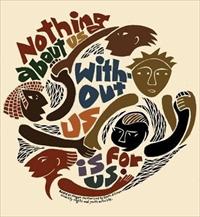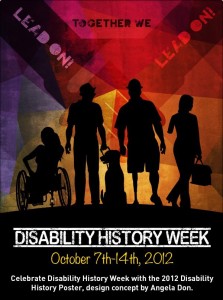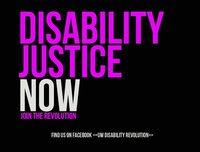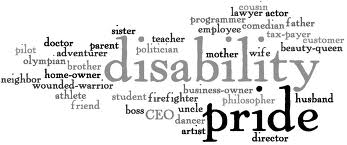Holding Fast To My Own Experience
I’ve been wanting to write this post for a long time, but it’s taken me awhile to get enough distance on the whole issue to be able to write about it out of power rather than out of fear.
As many of you know, I’ve done a lot of work critiquing research into autism and empathy — both in my academic life and online at my Autism and Empathy site. One of the driving factors behind this work was an experience I’ve been afraid to talk about. To put it as briefly as possible: the research conclusions surrounding an alleged lack of empathy in autistic people made me question when I am really empathetic at all, and they filled me with doubt and dread for a very long time.
I’ve spent much of my adult life describing myself as an empath, and I have always read emotional and social process very well. But then my autism diagnosis came along and voila! I was supposed to be deficient in empathy. In fact, I read study, after study, after study showing that autistic people have an empathy disorder, and the cold voices of authority started getting into my head. That was bad. Very bad. What Sartre wrote about the Jewish people applied equally well to me as an individual:
“They have allowed themselves to be poisoned by the stereotype that others have of them, and they live in fear that their acts will correspond to this stereotype.” (Sartre 1960, 95)
“Poisoned” is right. I was sick with fear and doubt. A year or two ago, I finally got up the courage to check the whole empathy question out with the people who know me best: my husband and my kid. I started with the kid, who was still a teenager at the time. I said, “Ash, do you think I’m empathetic?”
Ash looked at me in a way that only teenagers can look at mothers: with a mixture of impatience, love, and something bordering on anger for wasting their time. With an eye roll, my kid spoke the following immortal words;
“Mom. YES. You are very empathetic. Exhibit A: MY ENTIRE LIFE.”
I felt relieved. Later in the evening, after my husband came home, I related my conversation with Ash and poured out my relief as he made himself toast at the kitchen counter. His response? He was uncharacteristically brief. “Good,” he said. “No need to ask this question again.”
Somehow, those two conversations allayed my doubts. I couldn’t write about it for a long time, though. I couldn’t acknowledge publicly the kinds of doubt the research had raised in me. But I can do so now, because I’ve come to understand that I wasn’t just having an experience of personal insecurity. I’ve come to realize that this kind of doubt is common for people in all kinds of marginalized groups. I’ve finally seen the ways in which those with cultural authority speak for us, ask us to prove our experience with numbers and graphs and research papers, and then tell us that our experience means nothing because it doesn’t match their findings.
The rather obvious conclusion to draw from research findings that don’t match reality is that the research findings are wrong, but of course, that rarely happens. The research findings take on the authority of truth, and the experiences of people who actually live in the bodies being researched mean very little.
Put another way: The truth means very little. The story that is constructed, however, means everything, and we find ourselves spending massive amounts of energy arguing against the story, both within ourselves and with everyone else. Patricia Williams writes about studies on race in a way that rings true for me as I recall all the many hours I’ve spent refuting autism research:
“One of the great difficulties of pseudo-science is that it is so hard to refute just by saying it isn’t so. The logical structure — if not the substance — of pseudo-science posits what purports to be fact; it requires counter-fact to make counter-arguments. Black people find themselves responding endlessly to such studies before we can be heard on any other subject; we must credentialize ourselves as number-crunching social scientists quickly in order to be seen as even minimally intelligent… Real numbers, real science — it’s what school teaches us to revere. And it makes anyone who knows the great messy, unprovable contrary, who knows the indecipherable complexity of black or white people, who knows the reality and the potential of all humanity — us silly egalitarians — it makes us unintelligent, uninformed, powerless, and naïve.” (Williams 1998, 49-50)
“Real numbers, real science” — how do these things even begin to compete with the delicious, messy, complex, living, breathing nature of human experience? They don’t. They can’t. They can never even come close. They only put us into hierarchies: black/white, normal/abnormal, able/disabled, and so many others.
Do I regret that I spent so many hours critiquing the research? Do I wish I’d said instead, “To hell with your studies, to hell with your questionnaires, to hell with the careers you’ve built on the backs of people like me”? In some ways, yes. But in other ways, I am glad to have been able to spend some time in the belly of the monster, because I got to know its way of being very, very well and I got to see how very barren the belly is.
The monster doesn’t scare me anymore. It’s been banished. And when people try to raise the monster back up, I find myself wondering why they’re wasting their time believing in an apparition.
References
Sartre, Jean-Paul. Anti-Semite and Jew. New York, NY: Grove Press, 1960.
Williams, Patricia. Seeing a Color-Blind Future: The Paradox of Race. New York, NY: Farrar, Strauss, and Giroux, 1998.
© 2013 by Rachel Cohen-Rottenberg









6 comments already | Leave your own comment
Aliz
9/12/2013 | 5:00 pm Permalink
Perfect, those are my own fears, thank you.
Jesse the K
9/13/2013 | 10:36 am Permalink
Thank you for giving me words to understand why some experiences have been just that painful for me. You’ve helped me on the path from fear to power.
Has anyone studied whether the “empathy problem” is actually in reverse? It could be that neurotypicals, who encounter people who don’t display the social signals they’re accustomed to, simply can’t believe these autistics can decode the neurotypicals signals either?
Leith
11/13/2013 | 3:25 am Permalink
I have met (and still do meet) Many neurotypicals who don’t exhibit any empathy, and many aspies who do. The general feeling among the aspies I know is that we are hyper-empathic, and often are overwhelmed by emotion, to the point where we ay seem detached and not connected with the scene in front of us. OR that our very practical abilities kick in and we are the ones able to deal with a disaster when all the NTs are losing it.
Terrie Ann
11/13/2013 | 5:35 pm Permalink
My daughter has been diagnosed with Asperger’s twice. Her initial diagnosis at age 8 and then again at age 18. She is one of the most empathetic people I’ve ever met. One of the bravest also. She cares a lot about people and puts action to her caring. She helped take care of a child through Feed the Children (beginning at age 10-using her allowance and we added the rest), to inviting all the kids in the lunchroom at school who were being taunted or bullied to come and join her group of friends. She told me once that her group of friends were all the “misfits”. I told her I thought they were probably the only ones who weren’t misfits. She has stood up against bullies for other students even when she was really afraid to, but she cannot stand by and do nothing when someone is being hurt. I have been privileged to know young people with many kinds of disabilities (I hate that word) and I truly believe it’s wrong to ever place any kind of limits on anyone. Let them be who they are and they’ll surprise you.
Angel Griffin
11/15/2013 | 7:22 pm Permalink
The “empathy” nonsense is what made me doubt that my son was Aspergers. I’ve never seen such an empathetic kid – and he is definitely Aspergers. I know many, many Aspies and autistics–I wish they would teach neurotypicals how to be more empathetic. The searchers and researchers will eventually have to admit they got this one wrong. Autistic spectrum people are different in the sense that they have an unusual spread of abilities–a lot of high highs and low lows, so their skills sets are out of balance by normal standards. What do their compensatory mechanisms for bringing the highs and lows together have to do with empathy? They take it upon themselves to consciously observe the behavior of others in order to develop sensitivity and not to offend. No one works harder on empathy than autistic spectrum people. My god, it’s so nice to be asked outright what I need and have it delivered–no grudges, no sense of obligation. It’s nice to be respected enough to be told exactly what I need to know in unfamiliar situations. No judgement. It’s nice to be handled with care, as if I were a treasured piece porcelain that could break (because I can). Fortunately, Aspies can be totally clueless about really typical human behavior. What a blessing! Really typical human behavior is often really, typically selfish and insensitive. Bring on the Aspies–I need all the respect and tenderness I can get!
Trackbacks & Pingbacks
[…] Holding Fast To My Own Experience | Disability and Representation | Changing the Cultural Conversati… […]